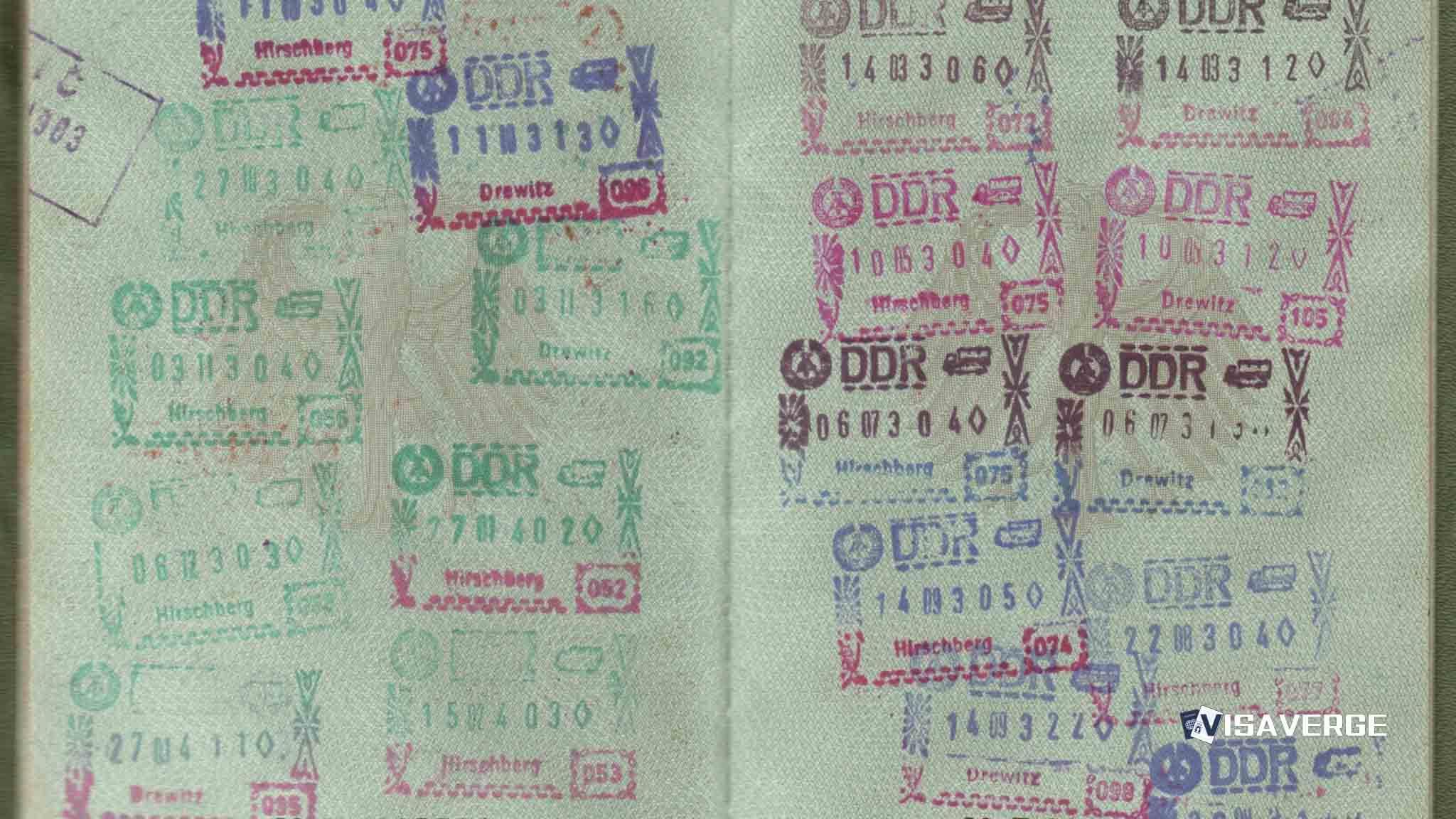How Does the US Green Card Process Affect Religious Workers?
In a fascinating turn of events, two members of The Benedictines of Mary, Queen of Apostles, a thriving religious community based in Missouri, found themselves embroiled in a US Green Card backlog, which has inadvertently led them astray from America but closer to a monumental opportunity in England. This scenario provides a stark example of how immigration issues can reshape lives in unexpected ways.

What Challenges Did the Benedictines of Mary Face with US Immigration?
The community, famed for their divine music and rapidly growing membership, faced a significant hurdle when two Dutch sisters, Sr. Helena and Sr. Philippa, encountered problems with their US permanent residence applications. As of early 2024, the I-360 form backlog—a crucial step in the religious worker visa process—affected these sisters detrimentally. Sr. Philippa was required to leave the US by March 23, 2024, and she, along with Sr. Helena and Sr. Emmanuel for support, headed to England.
This consequence is a reflection of broader challenges within the US immigration system, particularly affecting religious communities. These problems not only disrupt the lives of these individuals but also the operational capacity of the religious institutions they serve.
How Are New Opportunities Emerging for the Community in England?
Their relocation to England, though necessitated by unfortunate circumstances, has opened up unique opportunities. Welcomed warmly by the Jordan family in Gunstone, Staffordshire, the sisters found themselves surrounded by support and kindness. Here, they could potentially establish a new chapter for their community.
Moreover, the historic St. Mary’s Abbey at Colwich, a site with deep religious significance, caught their attention. This abbey, initially founded by St. Thomas More’s great-great-granddaughter and with a history of its community facing exile during Elizabethan persecution, aligns spiritually and historically with the sisters’ journey. The idea of acquiring this abbey to save it and repurpose it for their religious endeavors reflects a poignant symmetry to their own story of displacement.
What Does This Mean for the Future of the Benedictines of Mary?
Mother Cecilia of the Benedictines has shown immense interest in this potential new home for their community. Not only does it provide a rescue line to a historic English abbey, but it also offers a chance to expand their mission and accommodate their growing numbers. However, as noted in their Spring 2024 newsletter, financial constraints due to ongoing construction in Ava, Missouri, pose a significant challenge.
The community is reaching out for support in various forms, emphasizing that even small contributions, like streaming their music, can make a big difference. This drive underscores their resilience and adaptability – turning challenges into opportunities not just for growth but for significant historical preservation.
What Can You Do to Support Religious Communities Facing Immigration Challenges?
Supporting communities like The Benedictines of Mary can take various forms. Whether it’s through direct donations to assist with immediate financial needs or engaging with their cultural outputs, such as their music, every little bit helps. Additionally, advocating for clearer and more efficient immigration procedures for religious workers could provide long-term benefits.
For those looking into the specifics of religious worker visas and the associated challenges, visiting official immigration sites like the U.S. Citizenship and Immigration Services can offer detailed guidance and updates.
Conclusion
The narrative of The Benedictines of Mary, Queen of Apostles, is a vivid illustration of how faith and resilience can turn unforeseen challenges into pathways for growth and historical preservation. Their journey underscores the complexity of immigration issues and the profound impacts these can have on community life and spiritual missions. As they journey forward, perhaps towards the historic walls of St. Mary’s Abbey, they carry with them a story of faith, displacement, and hope that continues to inspire and resonate with many around the globe.
Learn Today:
- US Green Card Process: The US Green Card process refers to the steps and procedures individuals go through to apply for and obtain legal permanent residency in the United States. Green Cards, officially known as Permanent Resident Cards, allow non-US citizens to live and work permanently in the country.
-
I-360 Form: The I-360 form is a petition used for special immigrant classification, particularly for religious workers seeking permanent residency in the United States. It is an essential document in the visa application process for individuals involved in religious vocations or working in religious organizations.
-
Backlog: In the context of immigration, a backlog refers to a delay or accumulation of pending applications or cases awaiting processing by immigration authorities. Backlogs can significantly impact individuals’ journeys towards obtaining visas, Green Cards, or other immigration benefits.
-
Religious Worker Visa: A religious worker visa is a type of nonimmigrant visa or immigration status available to foreign nationals who are entering the United States to work in a religious capacity for a qualified religious organization. These visas are designed for individuals engaging in religious occupations or vocations.
-
Financial Constraints: Financial constraints in the immigration context refer to limitations or challenges faced by individuals or organizations due to insufficient financial resources. In the case of religious communities like The Benedictines of Mary, financial constraints can hinder their ability to navigate immigration processes, support their members, or undertake new opportunities like acquiring properties or expanding missions.
This Article In A Nutshell:
The US Green Card process impact on religious workers, like The Benedictines of Mary, unveils challenges and newfound opportunities. Facing immigration hurdles, they pivot towards England, eyeing St. Mary’s Abbey to expand. Support their mission through donations and engagement, turning obstacles into growth and historical preservation endeavors worth cherishing.
— By VisaVerge.com
Read More:
- USCIS Policy Updates to Increase Green Card Access for Foreign Workers
- Amazon Suspends Green Card Sponsorship for Employees in 2024
- Major Tech Layoffs Lead Amazon and Google to Halt Green Card Applications
- USCIS Implements Easier Green Card Process with Expanded Schedule A Waiver
- DV-2025 Green Card Lottery Results Available from May 4, 2024













